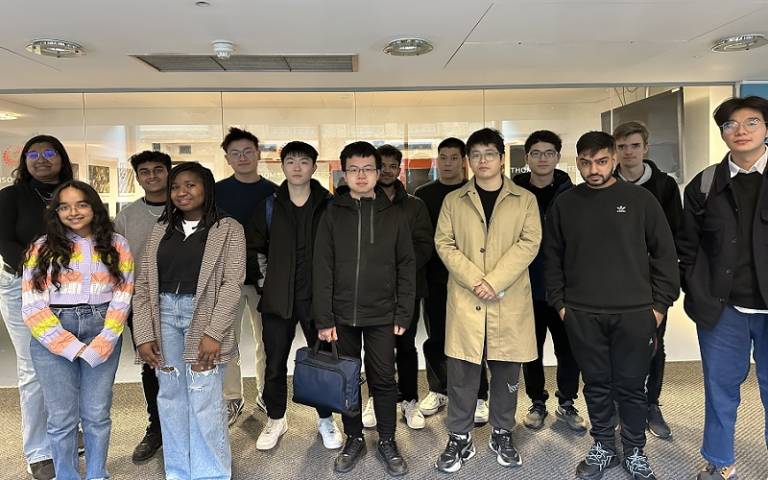UCL Computer Science students develop innovations to support the British Red Cross and IFRC
17 February 2023
With the UCL Industry Exchange Network (IXN), the world's largest humanitarian network is exploring new approaches to data science without diverting resources from their life-saving work.

The International Federation of Red Cross and Red Crescent Societies (IFRC) coordinates local Red Cross and Red Crescent action in 192 countries, including in Britain with the British Red Cross. The charities help vulnerable people in disasters and health emergencies, striving to build safe communities, improve people's resilience and promote peace.
As part of their undergraduate and master's study, UCL Computer Science students work with companies, charities and the NHS through the Industry Exchange Network (IXN). The UCL IXN programme allows students to develop their skills and gain work experience while enabling organisations to drive innovation in a risk-free way.
The IXN programme is particularly beneficial for the IFRC and Red Cross because it allows them to explore new technologies without investing money that could be spent on providing humanitarian aid.
The UCL IXN and IFRC/Red Cross projects currently involve six undergrad teams studying BSc/MEng Computer Science, supervised by Prof Graham Roberts, and two teams studying MSc Software Systems Engineering, supervised by Dr Emmanuel Letier.
The students are working on prototypes of operational data and infrastructure design. These proofs of concept are devised to efficiently extract key insights from data. This crucial information will be used in simulating reporting, analysing feedback, and applying for, and allocating, funding. One project is even examining historical data about disaster events, which could potentially predict where assistance might be needed in the future. By streamlining their operations, the IFRC and British Red Cross can be more responsive to emergencies.
Luke Caley, Information Management Lead at the IFRC, talks about the advantages of the programme: "Working with UCL IXN helps to mitigate risk in early prototypes, encouraging innovation and the freedom to try, fail, and try again. There's also a distinct advantage of being able to work with students, whose fresh take on new or old challenges injects energy and creativity."
The students are also finding it a highly positive experience. Team 4, comprising Dylan Penney, Hogan Ma, Omung Bhasin and Ryan Lock, said: "Working with the Red Cross is an incredible learning experience and a huge stepping stone up in the professional world. Our project will affect the disaster relief provided by the Red Cross in what we hope is a positive and impactful way."
UCL is committed to using our research, teaching and innovation activities to address global challenges. We believe we can have the greatest influence through our cross-sector partnerships.
Tim Bodley Scott, Strategic Alliances Director, UCL Computer Science, explains more: "This new collaboration is very exciting as it has the potential to bring positive change to the world. We are maximising our response to the UN Sustainable Development Goals, and this underpins the work of the IFRC and British Red Cross.
It's the first time that the IFRC and British Red Cross have partnered like this with a university. They benefit as it enables them to leverage digital technologies cost-effectively. Our students gain by working on computer science that could literally save lives, and they get to include a celebrated charity on their CVs".
Find out more about the Industry Exchange Network (IXN).
 Close
Close

